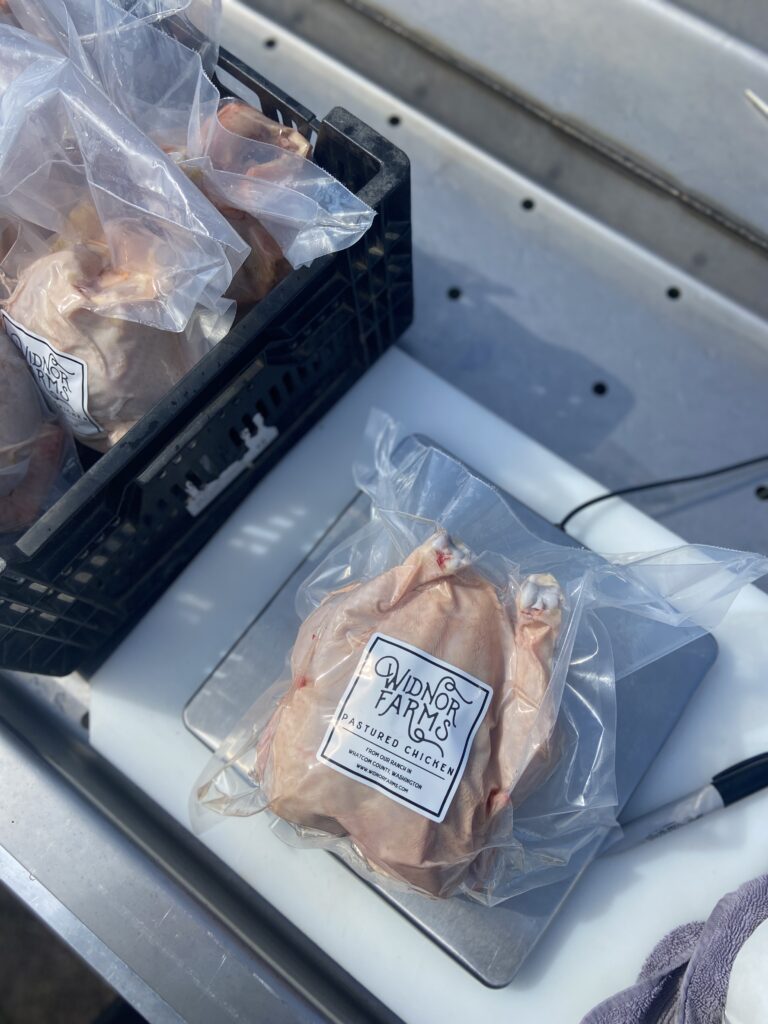We often get asked why our products cost more than what you might find at a national retailer—or even from a farm hundreds of miles away. It’s a fair question. After all, food is one of the most personal decisions we make every day.
So today, I want to take you behind the scenes—not to complain, but to explain. Because as a small farm raising animals with care in northwest Washington, the cost of doing it well isn’t just in the feed and fencing. It’s baked into the land beneath our feet, the taxes we pay, the wages we offer, and the system we’re choosing to opt out of.
The Midwest: Built for Big Ag
There’s a reason so many of the country’s largest farms are in the Midwest. It’s not an accident—it’s decades of design.

The Midwest is home to some of the most fertile, flat, and farmable land in the country. Commodity crops like corn and soy flourish there. Government investment in railroads, grain elevators, ethanol plants, and highway systems was largely designed to move those crops quickly and cheaply. The infrastructure was built around scale—and scale came fast.
To be clear: we value the work our fellow farmers do in every region. But when you raise food in a place like Washington State, where land and labor costs are dramatically higher, you’re playing an entirely different game with the same rulebook.
Let’s Talk Land
The cost of land is one of the biggest hurdles to farming here.
- In Iowa, the average price for an acre of farmland is around $11,800.
- In Whatcom County, farmland often runs $20,000–$30,000+ per acre, depending on location and zoning.
- And if that land has water rights—which are absolutely essential for pasture, crops, and livestock? It skyrockets.
There’s a parcel just kitty-corner from us: 171 acres, listed for $4.2 million. That’s $24,561 per acre—and that’s just for the land with water rights. No barns, no fencing, no infrastructure. Just dirt and the legal right to irrigate it.
The land price gap alone is extremely difficult to grapple with.
Let’s Talk Labor
In Iowa, the minimum wage is the federal baseline: $7.25/hour.
Here in Washington? It’s $16.28/hour—and we proudly start employees at $21/hour in our on-farm processing plant. Not because we’re trying to prove anything, but because good people deserve a living wage — and living here isn’t cheap.
But that also means:
- Every hour of labor costs 3x what it might in another state
- There’s no room for cheap shortcuts or cutting corners
We hire real people with real skills, and we’re proud to write those checks—because this is what ethical, transparent food systems look like.
Let’s Talk Taxes
Now let’s talk about the invisible layer that stacks on top: taxes.
- Property taxes on agricultural land are high, especially on land with development potential
- Employment taxes pile on top of our already high wages
- Washington’s B&O tax charges us on gross revenue, not profit
- Sales tax in our area ranges from 8.7%–10%, and it affects everything from supplies to equipment
Most people are surprised to learn that many small farms operate on razor-thin margins—often 5-10% on a good month. What we don’t reinvest, we hold back to weather the next storm—sometimes literally.
Meanwhile, in the Midwest…
Large-scale farms benefit from things we don’t have:
- Cheaper land and labor
- Access to major distribution infrastructure
- Federal subsidies that support cheaper feed production
- Proximity to feed production
This doesn’t make them the bad guy—it just makes the playing field very uneven. We’re not competing with another farm down the road. We’re competing with an entire system designed for volume and velocity, not transparency or stewardship.
Why We Still Choose This
We’re not here for shortcuts. We’re here because we believe food should be grown with care, by people you can look in the eye, on land that’s treated like a long-term investment—not a short-term yield.
When you shop from our farm:
- You’re helping us pay living wages to our team
- You’re keeping dollars in our local economy
- You’re investing in pasture-based systems that maintain the highest environmental and animal welfare ethics
- And you’re choosing flavor, integrity, and trust
Why Local Food Needs You
This model doesn’t work without people like you.
We could raise pigs in confinement, ship them for processing, and sell the meat under a brand name that hides its origin. But we don’t. And we won’t.
What we will do is keep showing up. Rain or shine, snow or wildfire smoke. We’ll raise good food for your family—just like we do for ours.
Because this isn’t just about price. It’s about value. And we’re so grateful that you see the difference.
Support Local Food—It Matters
Whether it’s meat, milk, or market-fresh vegetables, your choice to buy local keeps real farms on the map. It helps small producers—your neighbors—keep going.
If you’re looking for ethically raised, pasture-based meats, you can shop our ranch store anytime at
? www.widnorfarms.com
Your food has a story. Thank you for choosing one that starts right here at home.
PLEASE COMMENT BELOW